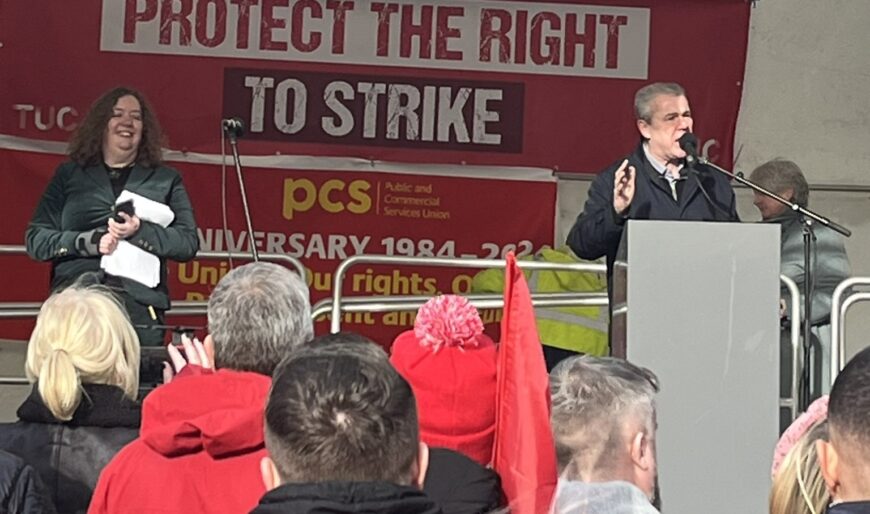PCS Announce First Legal Challenge of Government’s Anti-Strike Laws
via Thompson's Solicitors

The Public and Commercial Services Union, PCS, representing approximately 185,000 workers across the UK civil service, has begun the first legal action challenging minimum service levels set under the Strikes (Minimum Service Levels) Act implemented in December 2023.
In a letter before action, the union has threatened to take the decision to impose the regulations to a judicial review, arguing that they infringe upon the rights protected under Article 11 of the European Convention on Human Rights (ECHR), which safeguards the freedom of assembly and association, including the right to form and join trade unions.
The Strikes (Minimum Service Levels) Act 2023 gives employers new powers to impose minimum service levels during strike action in defined sectors, including border security services, if they choose to do so.
This would be achieved by employers serving ‘work notices’ specifying workers required to perform the minimum service levels. If workers named in the ‘work notice’ do not comply, or their union does not take reasonable steps to ensure its members comply, they will lose their legal protections.
Trade unions have heavily criticised the legislation as not complying with international labour standards and imposing further restrictions on the internationally recognised right to strike in an already severely restrictive UK legislative framework.
The regulations make provision for border services to be ‘no less effective’ on each strike day compared to when there is no strike. In a letter before action, the PCS has said they will argue that the minimum service level fails to give lawful and proportionate protection to the right to strike, protected by Article 11 of the European Convention on Human Rights and means that the essence of that right is undermined.
The PCS union has requested a response from the Government within 14 days, seeking clarification on these regulations’ proportionality, legality, and necessity.
According to Neil Todd, a partner at the trade union law firm Thompsons Solicitors, representing the PCS union:
“Minimum service levels are very difficult to justify in a legal regime which is already so restrictive regarding trade union rights. The Border Security Minimum Service Regulations provide an unlimited freedom to undermine the right to strike, which PCS says is unlawful, both in exceeding powers under the Strikes Act and international law.”
PCS General Secretary Mark Serwotka announced the legal action today (27 January 2024) as he spoke at the Protect the Right to Strike march and rally in Cheltenham. Addressing the crowd, Mr Serwotka said:
“Forty years on from Margaret Thatcher banning unions at GCHQ, a Conservative government is once again attacking trade unions.
So it’s fitting today, as we mark the courage and determination of those workers who refused to hand in their trade union membership, that I can tell you we are fighting this new injustice in the courts.
It is a fundamental human right of any worker to withdraw their labour to protect their terms and one we shall defend on behalf of our members in the Border Force.”
Watch Mark Serwotka’s speech here.
TUC general secretary Paul Nowak said:
“The TUC and the whole union movement will stand with PCS every step of the way with this legal challenge. These new minimum service level regulations represent an unprecedented attack on our fundamental right to strike. Mark my words. This case is just the beginning. We will use every lever at our disposal to fight these cynical laws.
These past few weeks have shown that these laws are unworkable. Any half-decent employer will steer well clear of minimum service levels. And it’s little wonder why. Ministers have designed these laws to escalate disputes – not resolve them. They’re undemocratic and likely illegal – and they’ve dragged us further away from European democratic norms.
If any employer dares to use minimum service levels, they will face the full force of the union movement. Unions won’t stop until these spiteful laws are off the statute book for good.”
This article was first published on Thompson’s Solicitors’ website.







